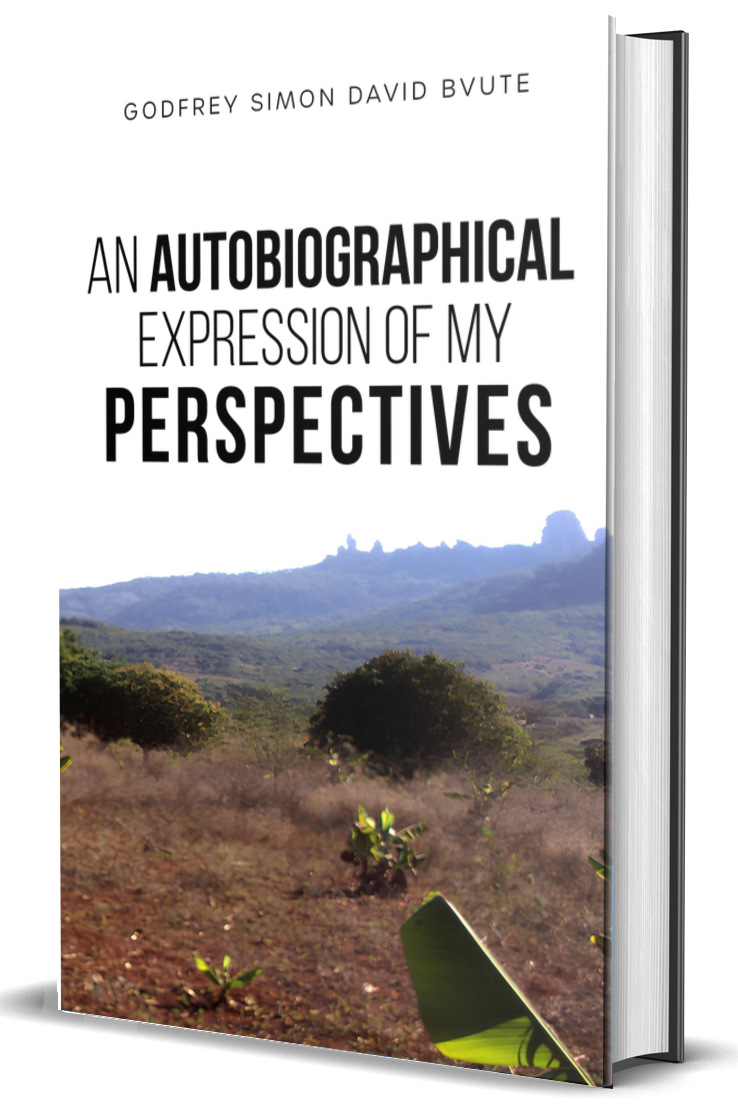Inspired by An Autobiographical Expression of My Perspectives by Godfrey Simon David Bvute
What kind of world are we leaving for the next generation? What values will define Zimbabwe’s place in that world?
In the final chapter of An Autobiographical Expression of My Perspectives, Godfrey Simon David Bvute offers a sobering and thoughtful meditation on the road ahead—not just for himself, but for his country and for humanity at large. Drawing from a life rich in experience and introspection, he challenges readers to think not only about where we’ve been, but more importantly, where we are going.

Bvute’s reflections are rooted in spiritual clarity, moral concern, and a deep sense of civic responsibility. He urges the youth to be hardworking, disciplined, and above all, God-fearing. But this isn’t an abstract call to piety. It’s a practical plea to restore the moral compass that once held communities together—and to resist the erosion of values that has accompanied both modernity and political disillusionment.
“We are living in times of unprecedented change,” Bvute writes. “Yet, we seem to be losing touch with what matters most.”
In his analysis, the decline in communal ethics, increasing selfishness, political fragmentation, and environmental degradation are all signs that Zimbabwe—and the world—is at a critical crossroads. For Bvute, rebuilding starts with rethinking leadership, re-centering values, and reconnecting with spirituality.
He doesn’t offer utopian solutions but grounds his hopes in personal accountability and collective will. As someone who has lived through war, served in international institutions, and experienced both triumph and grief, he speaks from a place of earned wisdom. His is not the optimism of naivety, but the resilience of faith.
One of his most resonant points is the urgent need for sustainable thinking—not just environmentally, but in how we treat each other. “Greed,” he warns, “is not sustainable. Exploitation is not sustainable. A future built without justice will always crumble.”
In a world defined by rapid technological advancement, economic inequity, and climate crisis, Bvute’s voice is a calm reminder that the future must be built on balance: progress must serve people, power must answer to purpose, and development must honor dignity.
He’s particularly concerned about the younger generation, whom he both admires and warns. “Youth today must understand that technology is a tool, not a substitute for values.” He encourages them to stay rooted, not only in their faith, but in their cultural identity and sense of responsibility to others.
An Autobiographical Expression of My Perspectives closes with reflections that are both intimate and universal—personal memories that fuel public insight. Bvute’s final message is clear: We cannot drift into the future—we must shape it.
For Zimbabwe, and the world, that means awakening a spirit of service, honesty, and humanity. It means nurturing spiritual health alongside economic growth. And it means understanding that sustainability begins in the heart, long before it appears on a policy document.
In this deeply reflective conclusion, Bvute invites all of us—leaders, families, communities—to ask: What will our legacy be? It’s a question every reader is challenged to answer.